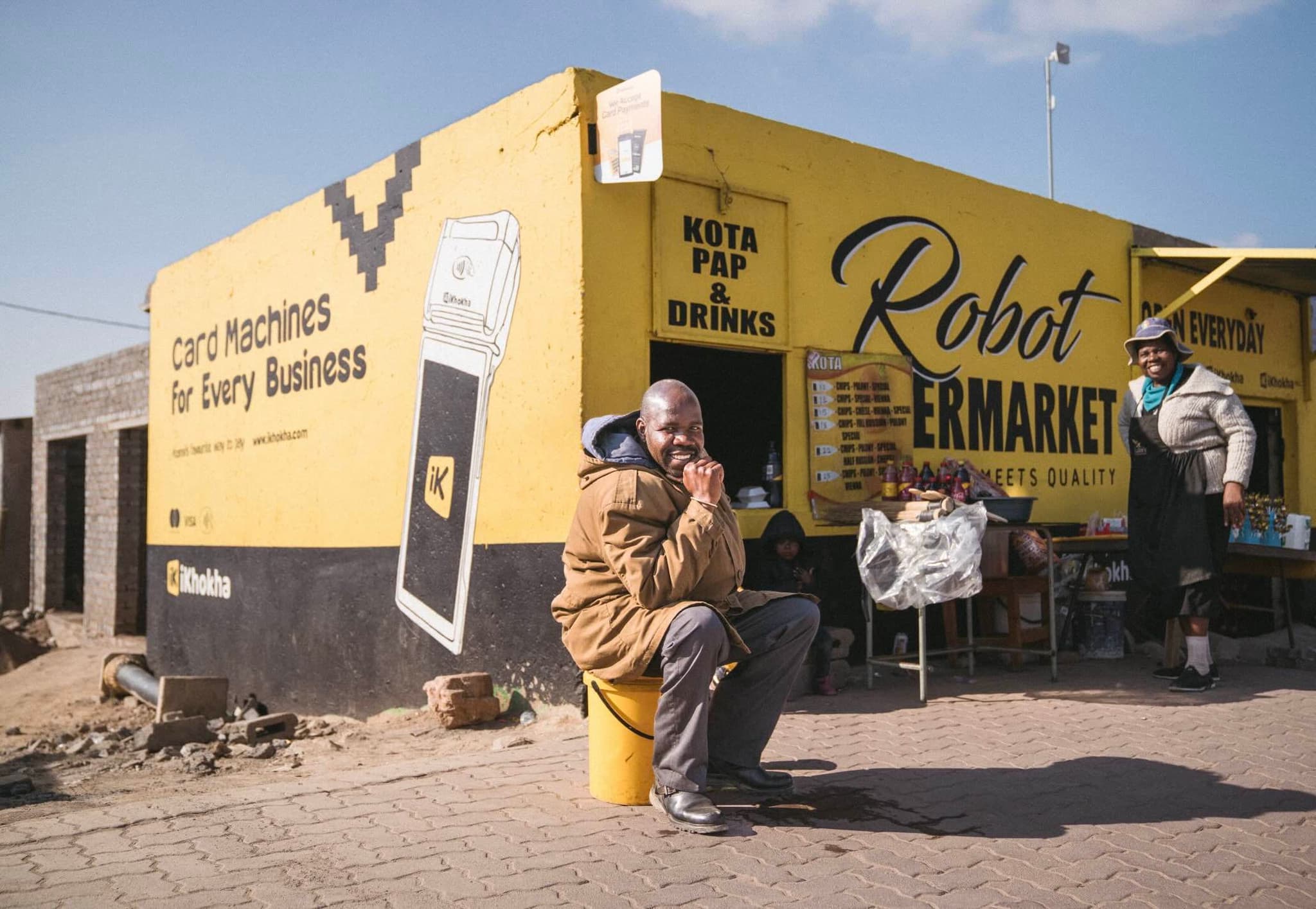
14 Things You Didn’t Know About Kasi Businesses and the Law
Hoorah! You’ve decided to launch your Kasi business, but do you have all the legalities in place? Let’s find out!
Like a sea dog fighting with the sails during a deep-sea tropical storm, it’s easy to get overwhelmed by the many requirements of starting a business. However, one thing that you must stay above water on is the legal obligations of starting and running your business eKasi.
There is much to discuss, so grab your notepad and don your thinking cap as we explore 14 things that you didn’t know about Kasi businesses and the law.
Legal Requirements for Your Business eKasi
Law is a formidable topic. Admit it, just reading “law is” gave you a slight shudder, right? But how we feel about the law should not hinder how we engage with it. In fact, the legalities of your business eKasi should be your top priority, as not abiding by them could have dire consequences for you and your business.
So, here is everything you need to know about your business eKasi and the law, and a few things you’ve never even considered!
Registration
First things first, is your company registered? Fortunately, registering a company in South Africa is a relatively painless process. All you need to know is the type of company that you’d like to register and that will guide you toward the documentation needed to get the process going.
Read all about How to Register a Business in South Africa.
1. Company Types
All companies are either non-profit or for-profit and will fall under different sub-sections after the initial designation. When starting your business eKasi, you’d most likely want to register a (Pty) Ltd profit company, but here are all the options that are available for new business registrations:
- Non-profit: Serving the public or specific groups and communities is the main objective.
- Profit: Making money is the primary goal.
- Personal liability (incorporated): Both present and past board members are responsible for any liabilities incurred during their time in office.
- Public: A company that is listed on at least one stock exchange with 50 or more shareholders.
- Private: Similar to what was known as close corporations.
Still thinking about which business to start? Check out 27 Innovative Kasi Business Ideas for the Emerging Entrepreneur in South Africa.
2. What Do You Need for Registration?
All new registrations require certified ID copies of the founder and other stakeholders. From there, you will need to fill out and sign the COR 15.1A form and any other forms needed for your company type. And that’s it! You may need other documents such as a power of attorney, but it all relates to your specific company type, so be sure to read the fine print.
3. Where Can You Register a Company in South Africa?
New company registrations can be done easily online on the CIPC website or on the affiliate BizPortal. Registrations can also be done at some banks and by contracting a third party to assist you. But we recommend going straight to the source by using the CIPC website or BizPortal.
4. The Cost of Registration
While registration is relatively cost-effective upfront, the price does change depending on the form requirements of your particular company type. For instance, reserving your new company name is only R75 when done online. But if you’re re-registering a deregistered company, you would need to add another R200 to your application fee.
Here’sthe full price list for registering a new company with CIPC.
5. Take Note
- Company registrations can take 7 to 21 days depending on whether you’ve submitted your documents in time and how busy the registrar's office is.
- A company must have at least one director.
- You can still register a company if you are blacklisted.
- Non-citizens are allowed to register a new business.
- You can still register your business without a company name (your registration number will be your company name until you change it).
Tax
We know that tax is as terrifying as an encounter with a black mamba and can feel equally destructive to the soul, so we’ll keep this short. Just remember that tax is a guarantee and must be paid by you, your employees, and indeed, your business.
6. Tax Registration
The tax implications of your business are informed by your company type and size. Every founder will have to register their business with the South African Revenue Service (SARS), but your company type and size will determine which tax bracket you fall into. And if your company's annual turnover is more than R1 million, you will have to register for Value Added Tax (VAT) as well.
So, be sure to get yourself acquainted with the SARS Tax Guide for Small Businesses.
Banking
7. Opening a Business Bank Account
In South Africa, almost all businesses are required to have a business bank account.
The process is simple and usually requires:
- The business owner’s ID
- The business’s proof of address
- Proof of CIPC registration.
Some banks may also ask for certain business statements, so check in with your specific bank about what is required from you.
Receive payments with ease by turning your phone into a card machine with iK Tap on Phone!
Insurance
Not taking out insurance on your business leaves you exposed and could result in your having to close your doors should there be a threat. Insurance cover is like your safety net that'll protect you in unexpected and challenging situations.
8. Getting Business Insurance
While insurance is not a prerequisite for new businesses in South Africa, it really should be. Protecting your business against unforeseen circumstances is vital in ensuring the longevity of your company.
You can take out insurance to protect your business against theft, fire, and even natural disasters. Take out product and public liability for an extra layer of protection, and not forgetting the real winners - policies with legal liabilities! And for South Africa, it would be wise to take out business interruption insurance to shield your business from protests, flooding, and other complications that may arise in the country.
Every insurer is different and so too are their policies, so do the necessary research to ensure that your business is covered on all ends.
Employees
As a new small business, hiring employees is probably not a priority - as yet. But as your business grows, you'll need some extra pair of hands to help ease your workload. When that time comes, here's what you'll need to keep in mind.
9. Employees and Tax
We briefly covered tax earlier, but it’s worth mentioning that you, as an employer, need to understand the tax implications for your staff. That means beefing up your knowledge of PAYE and any other tax-related ramifications for your company.
10. The COID Act
The Compensation for Occupational Injuries and Diseases (COID) Act was devised to provide workers with compensation for any injuries, disease, or disablement sustained during their employment.
Employers must register new employees within 7 days of employment with the Department of Labour. You’ll need to submit a completed W.As.2 form, a copy of your company's registration document, and the ID copy of your new employee.
You’ve already insured your business for extra protection, it’s only fair that your employees have a safety net of their own.
11. Contracts
From a company’s management structure to its brand identity and target market, every business is different. What works for another may not work for your unique business. As such, your employment contracts will be different from any other company that you can think of.
Now, you can always find a base contract template and work from there, but thereafter, it’s all about the specificities of your company. So make sure that your employment contracts are fair to both your business and its employees, and check that your contracts are aligned with all labour laws.
As we begin to wrap up this powerhouse cram session on small business law in South Africa, let's take a look at some of the things you might’ve missed, forgotten, or never even thought of.
12. B-BBEE Certificate
B-BBEE certificates usually only apply to companies with an annual turnover of more than R10 million. But if you are a registered Exempted Micro Enterprise, then you could also make use of the perks of being B-BBEE certified such as an increased provision of value-added goods and services, and a clearer path into the global market.
13. Supplier Contracts
Every business requires some sort of supplier relationship. Be it for ingredients if you own a bakery or a delivery service if you offer drop-offs without having your own vehicle, you’re bound to involve another company in the running of your business.
As we’ve touched on multiple times already, every business is different, so it’s vital that you know exactly what you’re getting from your business partnerships. Read your supplier contracts carefully to ensure that you and your business are not being taken advantage of. And research your suppliers thoroughly to make sure that their service, morals, and values align with yours.
14. Getting Help
Starting a business is a mammoth task and it’s almost impossible to do it all by yourself. Wherever your skills or knowledge may be lacking, employ a professional to help you along the way. Even if all they provide is advice, you’ll be one step closer to a long-lasting business and a step further from a flash-in-the-pan disaster.
Learn more from those who’ve got it right by checking out 16 Lessons from Successful Kasi Entrepreneurs.
The Fine Print
Law is all about the details. And now that you have all the details, you can rest easy knowing that your business is on a smooth course in untroubled waters. But to avoid any unexpected icebergs, remember to always read the fine print.





















